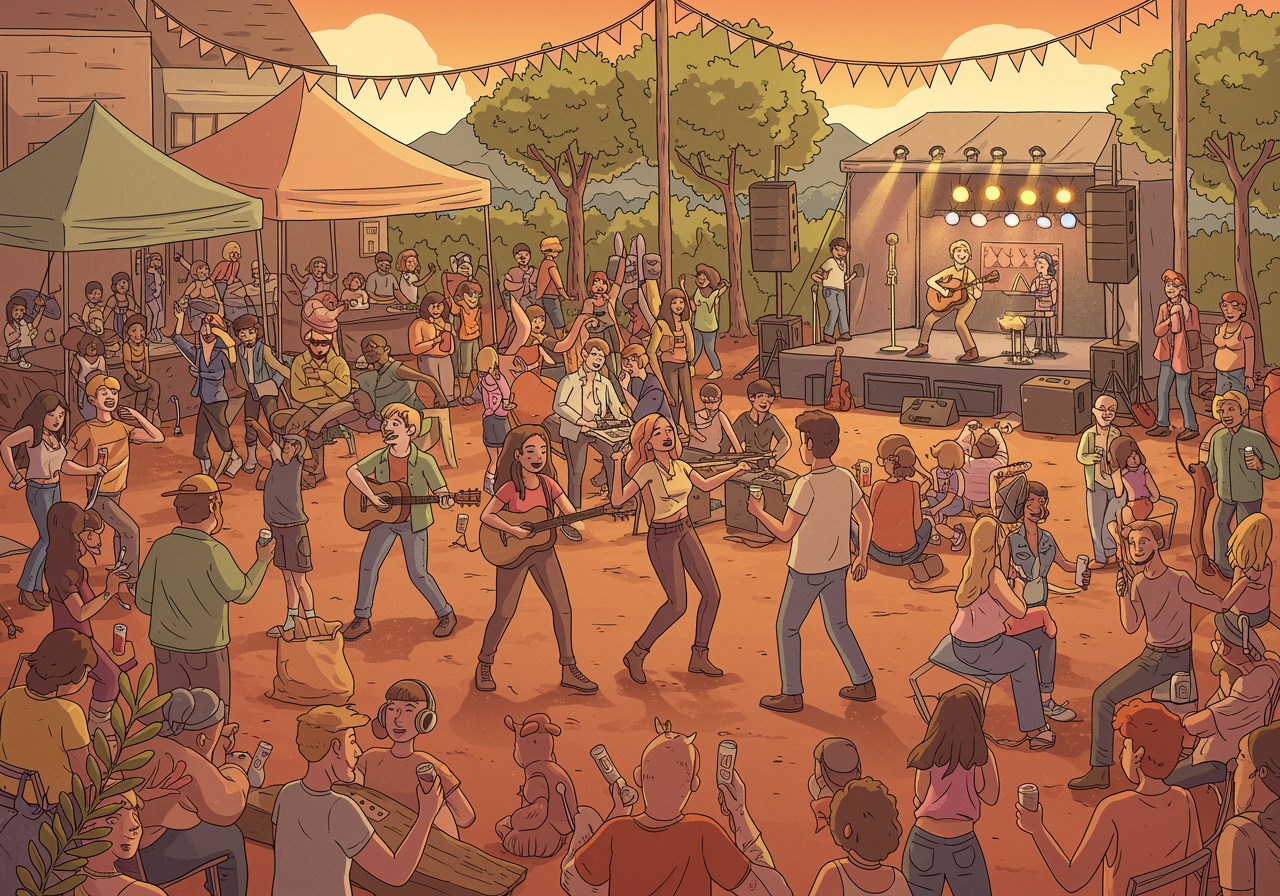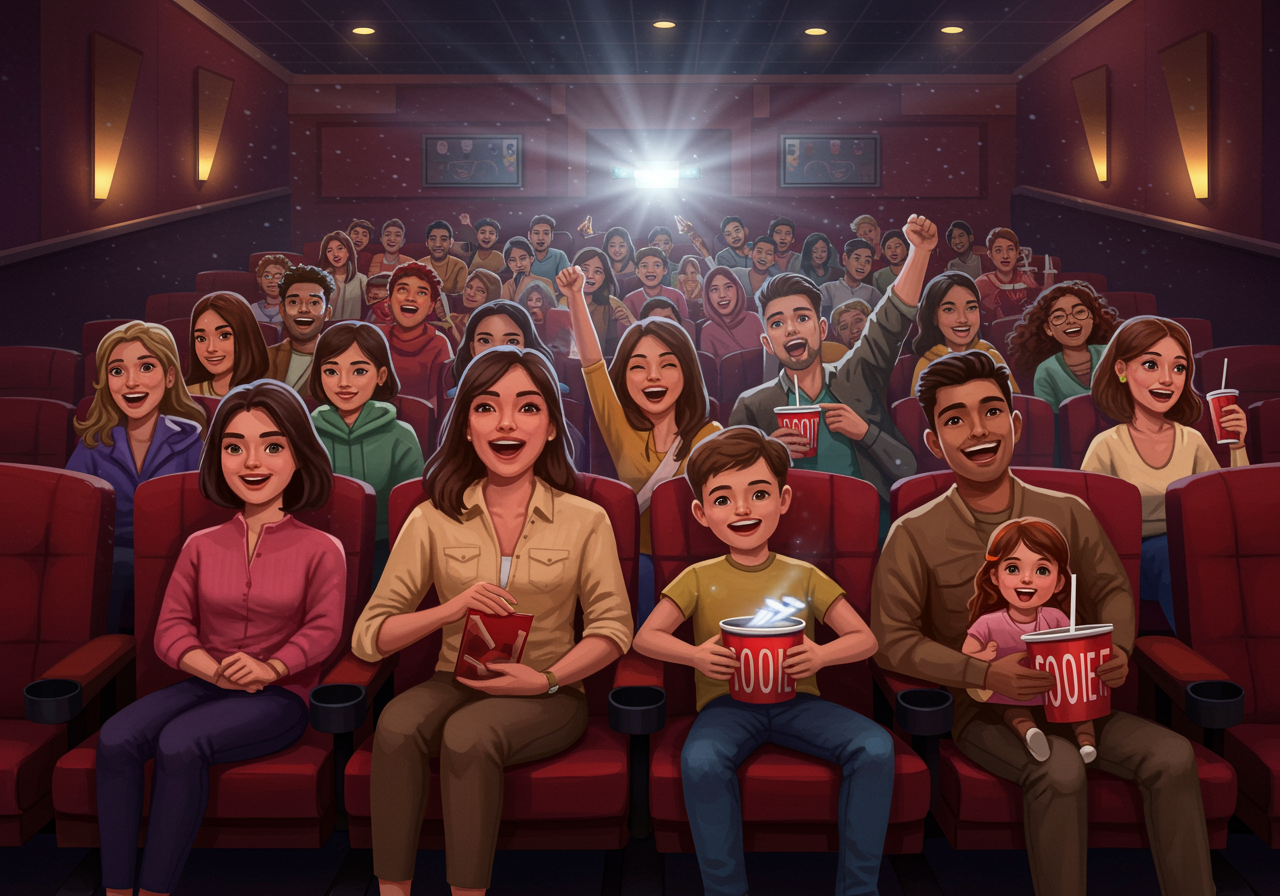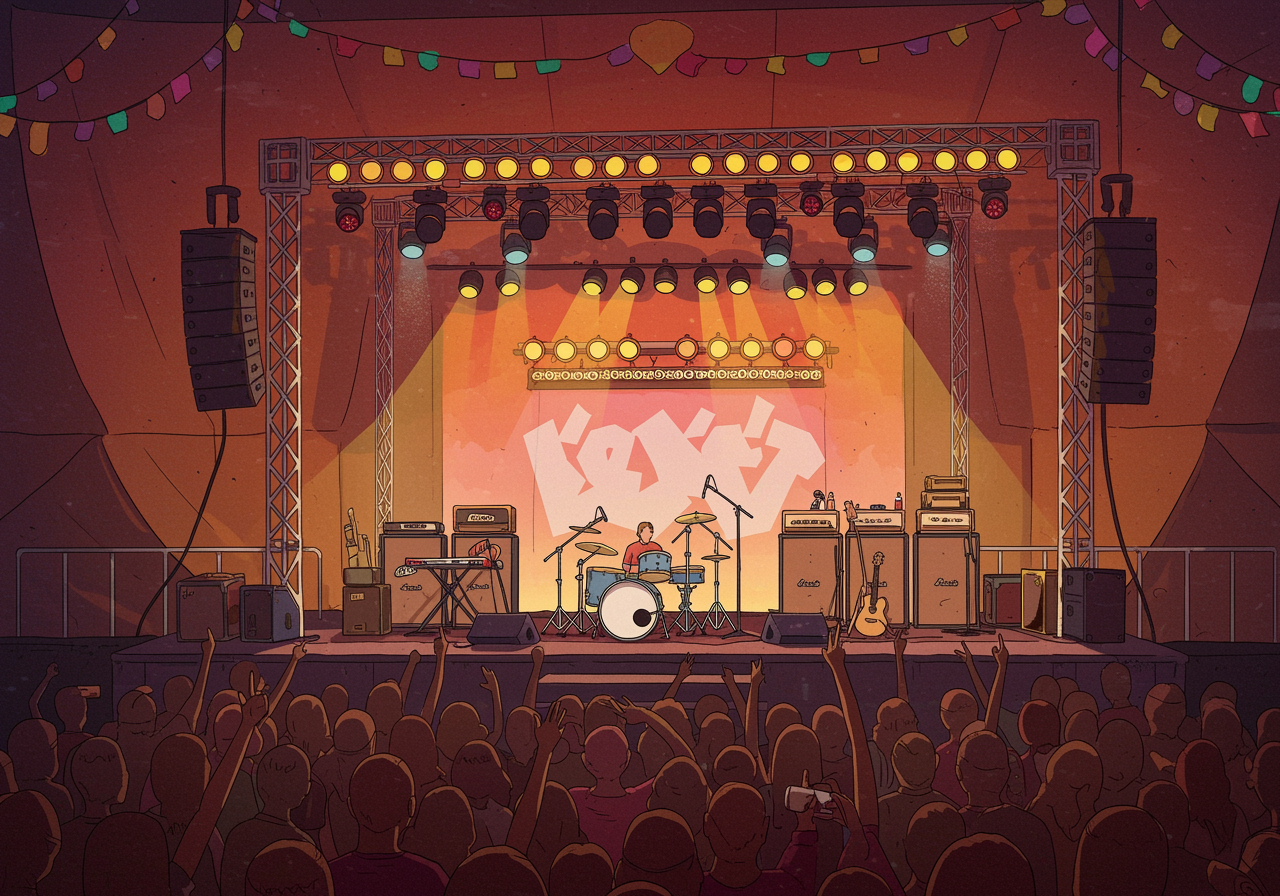The Magic of Being There: Why We Still Love Live Entertainment
Discovering why screens can’t replace the thrill of the real thing
Explore with your teen why people still pack stadiums, theaters, and concert halls when they could just watch from their couch!
Overview
Even with amazing home theaters and streaming services, people still line up for concerts, pack movie theaters, and fill sports stadiums. Why? This topic helps families explore what makes live experiences special and irreplaceable. It's a great way to discuss how technology enhances our lives without replacing everything meaningful about human connection and shared experiences. Plus, it might help explain why your teen begs to see their favorite artist live instead of just watching on YouTube!

Understand in 30 Seconds
Get up to speed quickly
- Your Body Feels the Difference: Live entertainment hits all your senses at once – you feel the bass in your chest, smell the popcorn, and experience sounds and sights that home speakers and TVs just can't match.
- Shared Energy Creates Magic: When thousands of people laugh, cheer, or sing together, it creates an electric feeling that you simply can't get watching alone on your phone.
- Every Show is Unique: Live performances are never exactly the same twice – artists might change lyrics, athletes make unexpected plays, and anything can happen in real time.
- Memories That Stick: Going somewhere special with friends or family creates stronger, more detailed memories than watching the same thing at home.
Real Life Scenario
Situations you can relate to
Imagine your favorite artist announces a concert in your city. You could watch their music videos at home for free, but thousands of fans are buying expensive tickets instead. Why? Think about the last time you went to a live event – maybe a school play, sports game, or concert. Remember how different it felt from watching videos? The crowd's excitement was contagious, the sound was deeper and richer, and you could see every detail of the performance. You probably talked about it for days afterward! That's because being physically present creates a completely different experience than any screen can provide.

Role Play
Spark a conversation with “what if” scenarios
What if you had to convince an alien who only knew about screens why humans still go to movie theaters?
- Role play: Take turns being the alien and the human. The alien asks questions like 'Why not just make your home screen bigger?' while the human explains the experience of shared reactions, big sound systems, and the ritual of going out.
What if you were a time traveler from 1950 visiting today?
- Role play: One person plays the time traveler amazed that people can watch anything at home, while the other explains why we still choose to leave the house for entertainment.
What if you had to design the perfect live entertainment venue?
- Role play: Work together to plan a space that maximizes everything home viewing can't provide – from seating that creates community to sound systems that make you feel the music.
FAQs
Frequently asked questions people want to know
But isn't it way more convenient to watch at home?
Absolutely! Home viewing is convenient, cheap, and comfortable. But sometimes we choose experiences over convenience – like how a homemade birthday cake tastes different than store-bought, even if store-bought is easier.
Why do people pay so much for live entertainment?
People value unique experiences and memories. A concert ticket isn't just buying music – it's buying the experience of being part of something special with other fans.
Will virtual reality replace live entertainment?
VR might create amazing simulated experiences, but it still can't replicate the social energy and physical sensations of being in a real crowd with real people.
Examples in the Wild
See how this works day to day
- Taylor Swift's Eras Tour broke ticket sale records despite all her music being available to stream, showing how live experiences remain irreplaceable (Billboard Music News 2023)
- Movie theaters saw record attendance for Top Gun: Maverick because audiences wanted the big-screen, surround-sound experience (The Hollywood Reporter 2022)
- Sports stadiums continue selling out even though games are broadcast in high definition on multiple platforms (ESPN Sports Business 2023)
- Theme parks like Disney World remain popular despite virtual reality technology that could simulate rides at home (Theme Park Insider 2023)
In Summary
What you should know before you start
- Live entertainment engages all our senses in ways that screens and speakers at home simply cannot match
- Shared experiences with crowds create emotional energy and memories that solo viewing can't replicate
- Every live performance is unique and unrepeatable, adding excitement and value to being there in person
- The ritual of 'going out' for entertainment creates anticipation and makes experiences feel more special and memorable
Pro-tip for Parents
You got this!
If your teen seems obsessed with attending live events, try connecting it to their values rather than just focusing on cost. Ask them to describe what they think will be different about the live experience versus watching at home. This helps them articulate why the experience matters to them and can lead to great discussions about what makes experiences meaningful and worth investing in.

Keep an Eye Out For
Find these examples in everyday life
- When your teen chooses to go to a friend's house to watch a movie instead of streaming alone – ask them what made that more appealing
- Notice how differently your family reacts when watching sports together versus separately, and discuss what creates that shared energy
- Pay attention to which performers or events still draw huge live audiences despite being available online, and explore what makes them special
Explore Beyond
Look up these related research topics
- How does social media change the way we experience live events (like taking photos at concerts vs. just enjoying them)?
- Why do some experiences feel more 'real' or meaningful than others?
- How do different cultures around the world value live entertainment and community experiences differently?